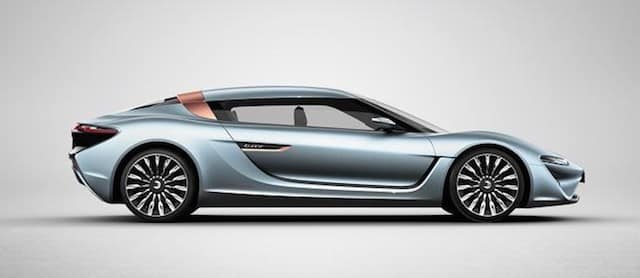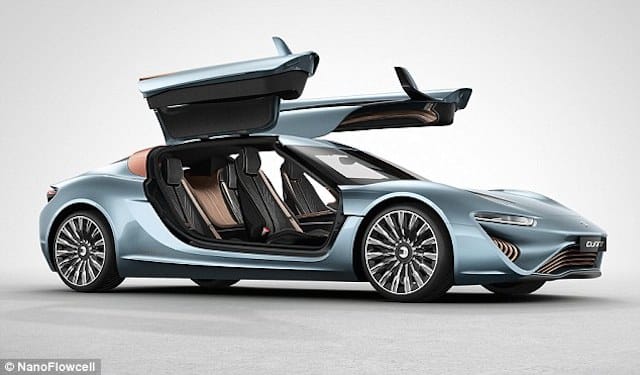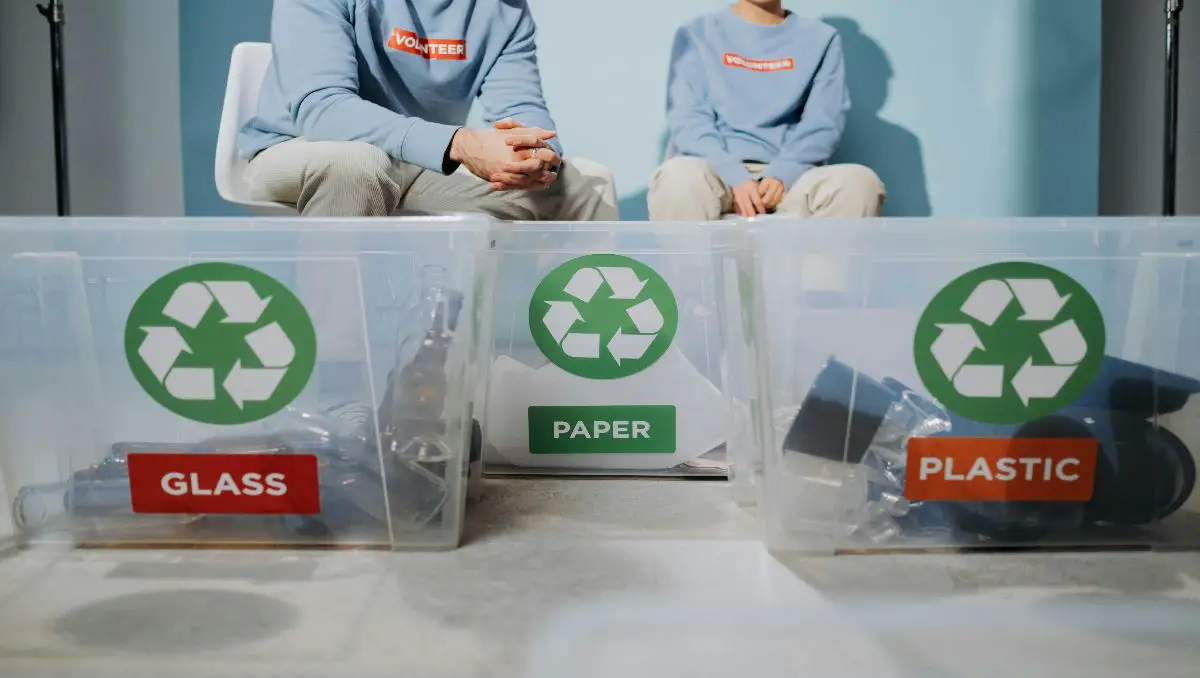It sounds like something from a sci-fi movie, a car that can run on nothing but salt water. And not only that, but it does it in style. The first version of the 4 seater Quant e-Sportlimousine has 920 horsepower (680 kW). It can go from 0-60 miles per hour in 2.8 seconds. It has a top speed of a whopping 217 miles per hour, and best of all it has just been approved for use in Europe!
The price tag has not yet been unveiled, but it is expected that it will cost in the region of $1.5 million to purchase. Especially as the second version of the vehicle, discussed below, (the Quant F) is expected to be even better.
This news is very exciting, as it would massively reduce our dependancy on fossil fuels. Using water as a fuel is a clean and green technology, and as such is a real threat to the oil and gas industries. Cars that run on water are not actually a new invention, there have been others in the past, but most have slowly gone away. So what makes this one different?
How Does The Salt Water Car Work?
The concept is similar to the hydrogen fuel cell, but the liquid used is salt water. The salt water passes through a membrane in two tanks, creating an electrical charge. The electricity created is stored by a ‘super capacitor’. The electricity is fed into 4 motors inside the car, which carries two 200 litre tanks. The car can travel for 600 km in a single journey.
So it doesn’t exactly run on salt water, it uses tanks (batteries) of charged electrolyte fluids (which is salt water) to store potential energy with enhanced efficiency. You can hear a description on the video below.
The potential for the NanoFlowcell technology could change the way we look at energy across the board. Salt-water cars are really just the beginning.
“We’ve got major plans, and not just within the automobile industry. The potential of the NanoFlowcell is much greater, especially in terms of domestic energy supplies as well as in maritime, rail and aviation technology” ~ NanoFlowcell AG Chairman of the Board Professor Jens-Peter Ellermann.

Is The Quant e-Sportlimousine Viable?
Despite all of the alternative-fuel inventions that have been and gone, it seems that the Quant e-Sportlimousine could really be onto something.
The designers claim that their NanoFlowcell system can provide a much greater range than a conventional electric car battery, and improvements have already been made. The second version of the vehicle, named the Quant F, has a range of 800 kilometers (around 500 miles) when fully charged. It’s top speed is 300 km/h (186 mph).
It has individual, separate motors running each of its four wheels, plus a two-speed transmission with horsepower of up to 1090 hp. The ionised fluids are held in two 250-litre tanks.

Past Green Car Inventions
As mentioned before, there have been many inventions unveiled that claim to have revolutionised the automobile. Solar powered cars, flying cars and indeed, water powered cars too.
In 2008 a Japanese company unveiled a water powered car, which could run using any type of water. The technology involved splitting the water molecules into their components of hydrogen and oxygen. The hydrogen was used to power the car, and the by-product was water vapour.
It was in theory, the perfect fuel. The hydrogen produced by ‘membrane electrode assembly’ (MEA) was of a high purity and very effective as a fuel.
Despite the excitement, the car was never produced, and in fact the whole operation has since shut down. The reason given was a lack of funding, but this has led to many conspiracy theories. Could it have been suppressed by Government? Or was it a hoax in the first place?
Hydrogen-Fuel Cell
Percival Zhang, an associate professor of biological systems engineering at Virginia Tech has headed research which has enabled efficient extraction of hydrogen from plant materials. The team has been able to produce large quantities of hydrogen from xylose, which is naturally found in abundance. It is a simple sugar, a component of the cell walls of plants.
Their technique is far more efficient than earlier methods, which wasted a great deal of the hydrogen produced. Unfortunately there is a problem when the hydrogen is required as a fuel source for vehicles.
“We don’t have a good storage mechanism yet. Compressed hydrogen is the best mechanism but it requires a large volume. We haven’t figured out how to store it with high density. What else? The fuel cells aren’t there yet, and the distribution infrastructure isn’t there yet. So you have four things that have to happen all at once. And so it always looked like it was going to be the distant future. In order to get significant deployment, you need four significant technological breakthroughs. That makes it unlikely.” ~ Steven Chu, Energy Secretary
The US Navy
Aside from private business, the US Navy has also tried salt-water as a source of fuel. The logistics required to refuel Navy vessels while at sea can be very costly, and also pose a national security threat to sailors on the sea. The amounts required are staggering:
“In Fiscal year 2011, the U.S. Navy Military Sea Lift Command, the primary supplier of fuel and oil to the U.S. Navy fleet, delivered nearly 600 million gallons of fuel to Navy vessels underway, operating 15 fleet replenishment oilers around the globe.”
Salt-water energy would therefore revolutionise the way that the Navy works.
“In close collaboration with the Office of Navel Research p38 Naval Reserve program, NRL has developed a game changing technology for extracting, simultaneously, CO2 and H2 from seawater. This is the first time technology of this nature has been demonstrated with the potential for transition, from the laboratory, to full-scale commercial implementation.” – Dr. Heather Willauer
So while this car does not exactly run on salt water, rather ionised storage packs, it is certainly a promising invention. The fact that it has been approved for use on European roads does sound promising. If the technology does come into action it would be a real game changer. I for one will be watching closely.
How about you? What are your thoughts on this news? We would love to hear from you.








